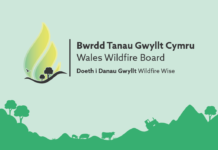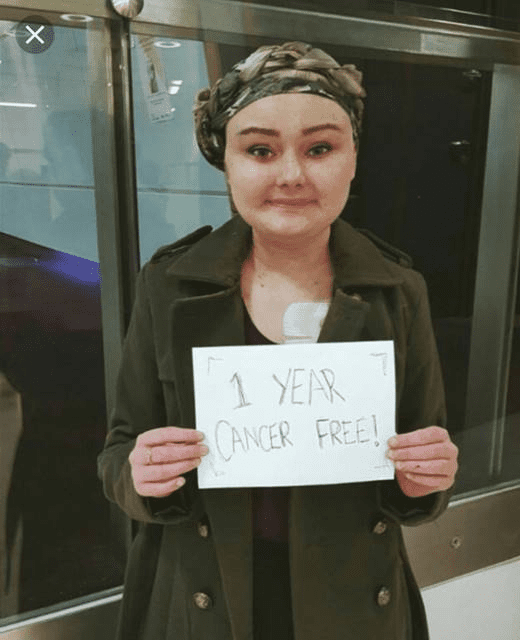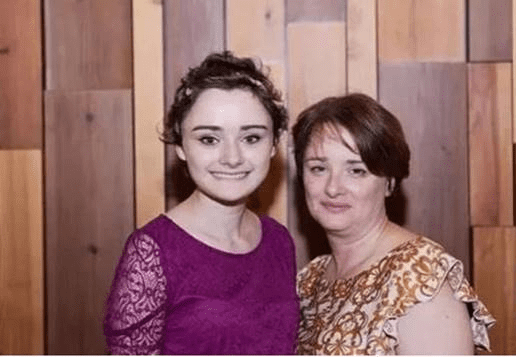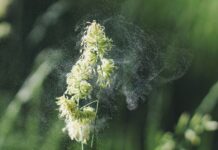A bereavement guide written by blood cancer charity Anthony Nolan and assisted by a mum from Llantarnam, has won Highly Commended at the British Medical Association Patient Info Awards.
Donna Dunn, the mother of inspirational teenager Emily Clark who died aged 18, helped produce the Bereavement & Stem Cell Transplant booklet, the first ever bereavement guide written specifically for families of patients who have died following a stem cell transplant.
Emily was a keen blogger and set up her Remission Possible blog after being diagnosed at 16 with Non Hodgkin (Burkitts) Lymphoma, to support other teenagers in a similar position. She also inspired thousands to sign up to be potential stem cell donors.
Anthony Nolan found a matching stem cell donor for Emily, and following her transplant, her doctors declared her cancer free.
But sadly, one year later, in 2016, Emily died due to breathing difficulties and problems with her lungs.
Being told your loved one has a match on the stem cell register, the anticipation of going through going through a stem cell transplant, followed by losing that person after their transplant can be uniquely devastating. Although it’s a challenging treatment, there is often a lot of hope that it will give a long-term remission. Sometimes, despite the best efforts of everyone involved, it’s not always successful.
Anthony Nolan identified a gap in bereavement services for families of patients that had gone through stem cell transplants. The charity asked relatives of patients, including Donna, to edit the booklet. The booklet is packed full of honest advice about what has and hasn’t helped plus information on where to go for further help and support.
The BMA judging panel said of the publication: “This fills an information gap, and from our experience, these are exactly the questions that families ask.
“The resource is a great example of co-production, with input from experienced professionals and patients or families with direct experience of the issues discussed. Although the content was written by a healthcare professional, the experiences of users formed the basis for the information provided (based on in-depth interviews with bereaved families). Users were then involved in reviewing and refining the final output, as well as contributing additional material for the website.
“Information is provided as a series of questions often posed by family members and the responses are clear. This manages to address some very difficult questions which I think would otherwise be extremely challenging. One of the great strengths of this resource is that it doesn’t try to provide definite answers to complex questions.”
Donna said: “We live in South Wales, which meant we travelled about a lot for Emily’s treatment.”
Describing the gap in bereavement support offered to parents of teenagers Donna said: “There was a parents’ bereavement group in the hospital where Emily died. But unfortunately, because she was 16 when she was diagnosed, she was never part of the children’s services. So I wasn’t able to attend the group, despite my best efforts.
“I was and continue to be supported by Kids’ Cancer Charity, but it’s an hour and 10 minutes’ drive each way.”
When recalling why she wanted to share her experience of bereavement after a stem cell transplant with others, Donna said: “I was always very keen for people to know cancer didn’t technically kill my daughter. No battle had been lost. She hadn’t relapsed. She was still in remission.”
“I know a lot of families feel the same.”
Tom Bishop, Senior Patient Services and Information Manager at Anthony Nolan said: “We’re delighted to see our Bereavement & Stem Cell Transplant booklet awarded Highly Commended in the BMA Patient Info Awards.
“Bereavement after a transplant is never an easy subject to broach and the best advice will inevitably come from those who understand it best. Without Donna and our other patient families willing to share their story to help others, this booklet would not have made it to print. Thank you.”
Find out more about Anthony Nolan at www.anthonynolan.org
Help keep news FREE for our readers
Supporting your local community newspaper/online news outlet is crucial now more than ever. If you believe in independent journalism, then consider making a valuable contribution by making a one-time or monthly donation. We operate in rural areas where providing unbiased news can be challenging. Read More About Supporting The West Wales Chronicle






















